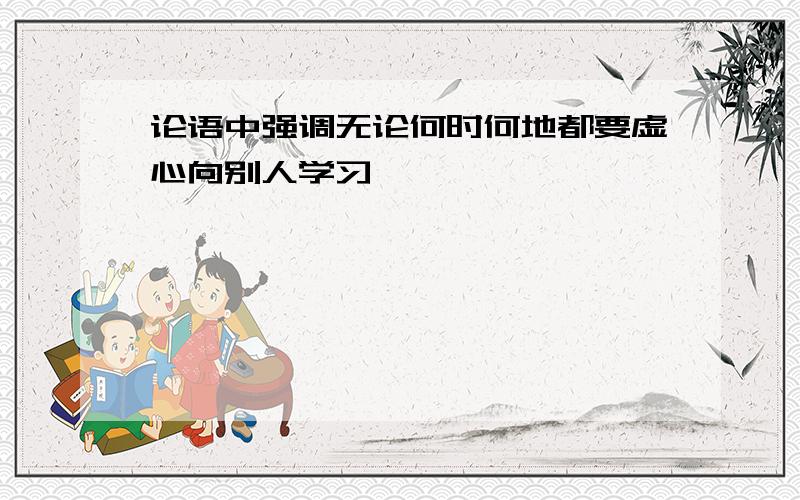论语中强调无论何时何地都要虚心向别人学习
来源:学生作业帮助网 编辑:作业帮 时间:2024/11/19 04:56:26

wheneverandwherever,Ialwaysenjoyyourbeauty.
NomatterwhenorwhereIam;nomatterhowenvironmentchange.
wheneverandwherever,youcancommunicatewithothersbymobilephone.无论何时:whenever无论何地:whereverpeoplecanseld
你的过去我来不及YourpasttimeIcan'tcatch你的未来YourfutureIwon'tletitgo无论何时无论何地我们永远不会忘记彼此WheneverWhereverWewon'tf
无,分情况讨论.I作我时要大写,句子首字母要大写,国家组织等专有名词要大写,引号中特别强调的要大写,名字首字母要大写
你怎样理解无论何时,无论何地,只要忆及那清清爽爽的剪纸声,我的心境与梦境就立刻变得有声有色?好像是怎么理解这句话?个人理以声写出了内心的平静.写出了我对声响的怀念与习惯(也许吧)从清清爽爽可以看出剪纸
表达了一种思念家乡的感情
英文翻译Nomatterwhenandwheretheknowledgeispowe
三人行必有我师焉.
NomatterwhenIbesideyou,babyNomatterwhereyouareinmyheart,babyLoveyouthemomentIhadmadeuphismindNomatte
wheneverandwhereve
IwishIcanheipyou!OralEnglishisveryimportantinlearningEnglishonlybyspeakingEnglish,canwelearnEnglishw
三人行,必有我师焉不耻下问
自己选去——————————————————《论语》全文学而第一子曰:“学而时习之,不亦悦乎?有朋自远方来,不亦乐乎?人不知而不愠,不亦君子乎?”有子曰:“其为人也孝悌而好犯上者,鲜矣.不好犯上而好作
不耻下问:“敏而好学,不耻下问.”——《论语·公冶长》成语来由:卫国大夫孔圉聪明好学,更难得的是他是个非常谦虚的人.在孔圉死后,卫国国君为了让后代的人都能学习和发扬他好学的精神,因此特别赐给他一个"文
WheneverorwhereverIhopetoseeyouagain.
Don'teasilytodependononeperson,itwillbecomeyourhabit,whenrespectivelycoming,youlosenotoneperson,buty
Nomatterwhenandwhere,weallneedrememberourfriendship,don'tmakeourmemorybebrokenbythetime.(拙见~)
UnderthestudyofConfusion,Chinesepeoplehaveastrongconceptoffamily.Nomatterwhere,when,orwhattheydo,the